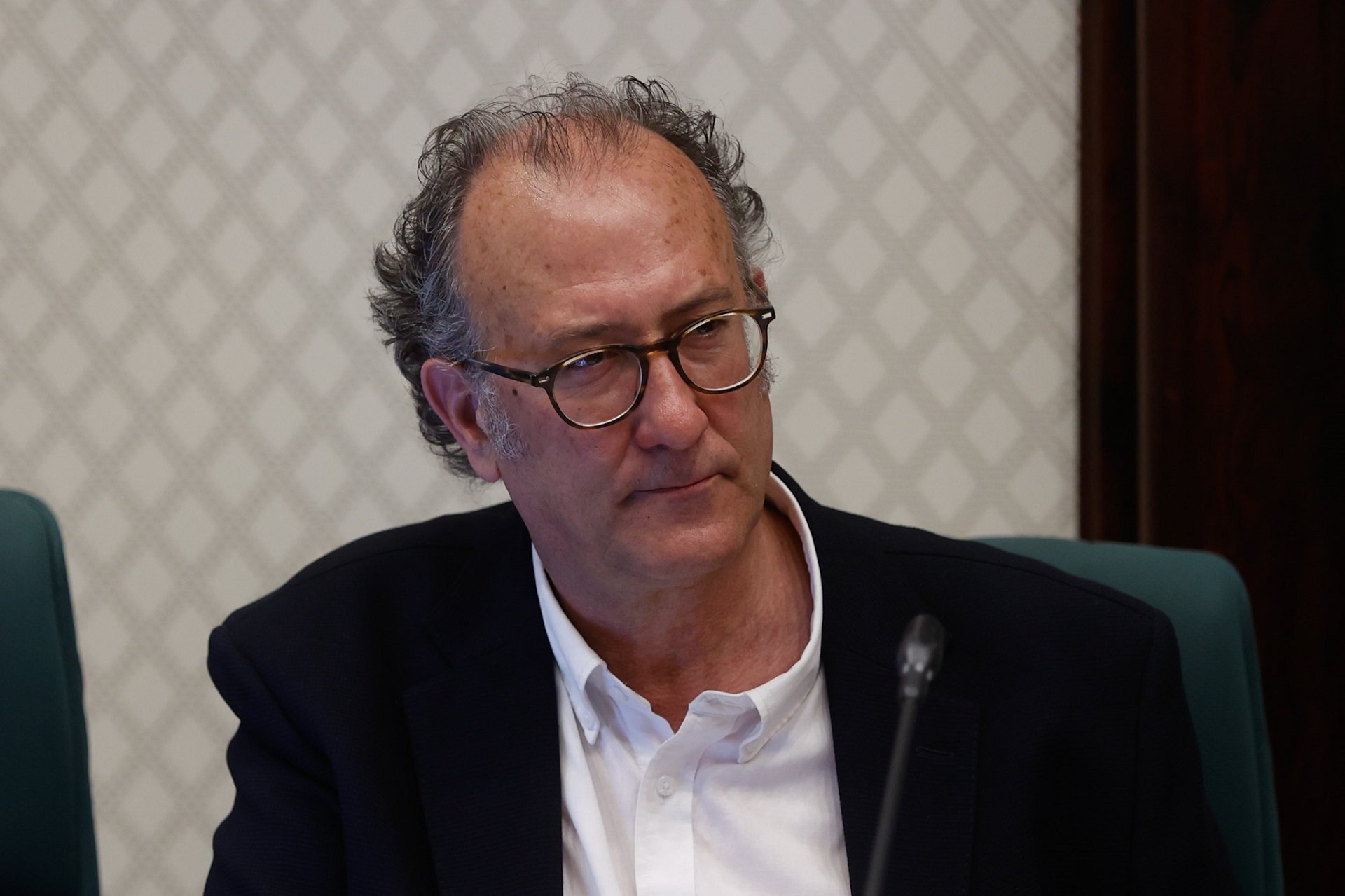"The magnitude of the scandal is much greater than what we know so far." This was the assertion of the president of Òmnium Cultural, Xavier Antich, when he appeared this Friday in the Parliament of Catalonia, as part of the commission of inquiry into the Catalangate espionage case, under which Pegasus spyware was used to spy on the Catalan pro-independence leaders, contacts, family members and others. Antich was appearing to present the evidence with regard to four cases of people in the Òmnium organization who were targetted with the powerful surveillance program, but he also took the opportunity to recall that the 65 Catalan cases detected in the report by Canadian research centre Citizen Lab are only the tip of the iceberg, given that, as the original report noted, only cases affecting devices using the Apple operating system (iOS) can be detected at present, leaving aside those of Android users, which are likely to be the majority of cases given the higher proportions of mobile phones in use that employ this operating system. The leader of the Catalan cultural organization pointed out that "spying on members of an organization like Òmnium has an enormous multiplier effect", since it is not a "violation of rights" limited to the four people spied on, but also affects all those in their environment: "We are facing an exponential and massive violation of rights in global civil society."
In his words to the committee, Xavier Antich condemned the mass spying on political and social leaders and activists in the Catalan independence movement: "Illegal cyber-espionage against elected officials and against civil society is should not be expected of a democracy. In fact, it is a practice that is inappropriate for a democratic system, and is more typical of totalitarian systems and police regimes where fundamental rights are not respected". He railed against the Spanish state for what he called its goal of "creating a chilling effect". What has been intended, according to the Òmnium president, is to send a message that "even if the independence movement is peaceful", its members "run the risk of suffering indiscriminate repression". According to Antich, there has been an affort to "perfect the repressive machine against the independence movement".
Catalangate "is not an isolated event"
In his account of events, the Òmnium Cultural president gave the dates on which the espionage was detected against Marcel Mauri (then vice-president of the organization and, in practice, its most visible face due to the imprisonment of leader Jordi Cuixart; he suffered 19 attacks with Pegasus), Txell Bonet (Cuixart's partner), Jordi Bosch and Elena Jiménez (from the organization's legal team and who exchanged many documents on the legal strategy and had contacts with international NGOs ). "Through this espionage, what the Spanish authorities wanted to find out about was Òmnium's network of institutional relations, the content of the organization's meetings, how we would protest when the Supreme Court leaders' trial sentences came out... it's barbaric," he said. The dates of some of the device hackings coincide with Jordi Cuixart's first days in prison, a few days after the sedition sentences and the first few hours after the application of a more flexible prison regime for Jordi Cuixart: "We are faced with an attack against the pillars of democracy, against freedom of expression, association and assembly," Xavier Antich explained.
Nevertheless, Antich maintains that Catalangate "is not an isolated event", but the "umpteenth repressive tool employed against the Catalan independence movement and the defence of self-determination". The Omnium leader framed the espionage in the context of other repressive episodes such as the "police violence" of 1st October referendum, the "arbitrary" imprisonment of political and social leaders, the "multiple criminal cases opened against hundreds of mobilized citizens" and the infiltration of police officers into the pro-independence left "applying measures typical of the fight against terrorism". He noted that, of the 18 who are known to have been spied on with judicial authorization according to the CNI intelligence centre, "we have never received any official communication in this regard from the Spanish authorities" and wondered: "And the other 47, what about them? Were they authorized by a judge? Are they part of some secret criminal case? If so, what are they accused of? Terrorism? Organized crime?". "These are things that are too severe to allow years to go by with veiled threats," he concluded.

